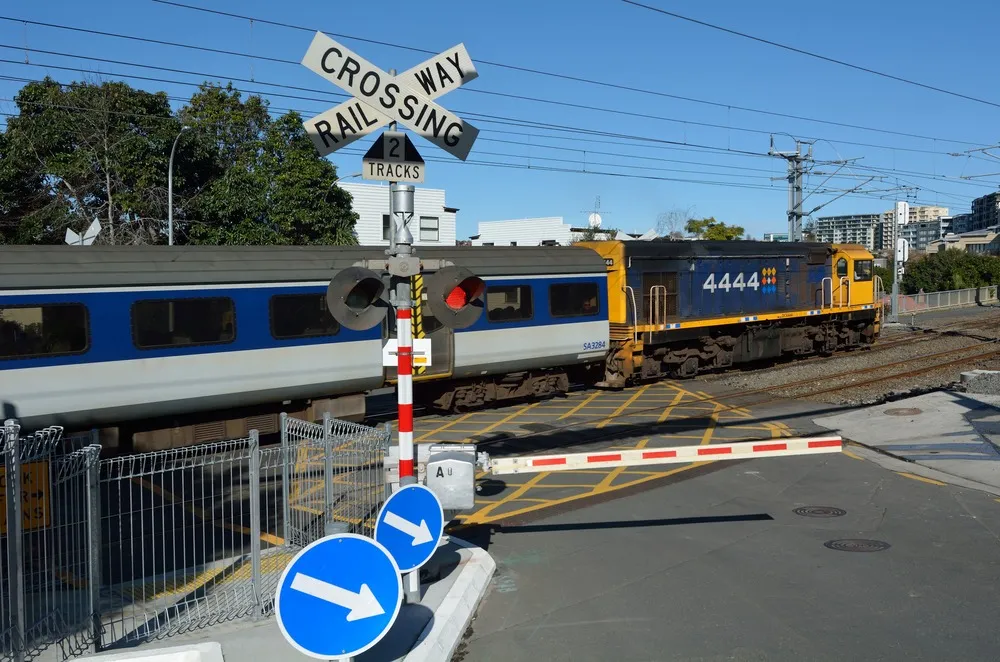Trains offer a relatively safe way to travel. They are significantly less likely to cause passenger deaths than cars or ferries. However, accidents still happen — plus, passengers are not the only ones who can be injured. Railway employees, pedestrians, and motor vehicle drivers can also be hurt.
If you’ve been involved in a train accident, you may have spoken with a lawyer about suing for your injuries. You may have even filed a claim already. But how do you pay mounting bills before your case is finalized? Call Rockpoint Legal Funding today to talk about personal injury legal funding.
While often called a legal loan or lawsuit loan, litigation funding for accident injury cases is not a loan in the traditional sense. That’s because if the case doesn’t go your way, you’re not responsible for paying back the funds. As an accident victim, this gives you peace of mind and a way to pay your bills without taking on additional debt.
The Dangers of Train and Railroad Accidents
While train crashes don’t happen as often as car accidents, the consequences can be more severe. According to the Federal Railroad Administration, motorists are 20 times more likely to die in crashes involving a train than in accidents involving another car.
The National Safety Council reported that in 2022, 954 people died in railroad accidents, while 6,252 people suffered non-fatal injuries. The injury statistics included 550 trespassers, 717 passengers, 3,316 employees, and 4,899 others. Both railroad deaths and injuries increased in 2022 over the year before.
Five Types of Train Accidents
Many train accidents fall into one of the five broad categories below:
1. Derailments
Derailments happen when trains go off the rails. Around 1,000 train derailments take place every year. Many derailments are minor and may involve only a single wheel leaving the rail. In other cases, however, a train goes completely off the track, sometimes causing injuries, fatalities, and dangerous chemical spills.
2. Crashes With Other Trains
Trains may also collide with other trains on the same track because of miscommunications or mechanical errors. Like cars, trains can have head-on collisions or rear-end collisions.
3. Collisions With Objects and People
In some cases, trains can collide with obstacles on the track. Debris can cause wheels to slip, or trains can crash into wreckage from previous accidents. Unfortunately, trains sometimes crash into motor vehicles stopped on the tracks or pedestrians crossing the tracks.
4. Fires and Explosions
Trains may also catch fire and explode. Derailments and collisions can ignite fuel fires, toxic chemical explosions, and wildfires. Worn brakes, failing axles, and rail maintenance can sometimes cause fires.
5. Falls and Falling Objects
Even when the train doesn’t collide with anything, a sudden start or stop can cause passengers to fall and hurt themselves. You may trip over debris in the train walkway, or overhead luggage may fall on you. Slippery conditions inside the train, on the platform, or in the station could also pose an injury hazard.
Common Causes of Train Accidents
While not all train accidents are preventable, many are. Individuals and businesses are supposed to act with reasonable care to ensure your safety, but they don’t always do so. Various factors contribute to train accidents, including the following:
Conductor Negligence
Train operators have numerous duties, including monitoring instruments, keeping an eye on the track, and documenting potential problems. If they drive too fast, fail to follow safety protocols, fall asleep, or are intoxicated or distracted, they may cause an accident. Companies can also be negligent if they don’t properly hire, train, or supervise personnel.
Improper Maintenance
Properly maintaining trains, tracks, equipment, and infrastructure is essential to safe train operation. Train companies and government agencies are responsible for the following:
- Conducting regular inspections
- Making prompt repairs
- Upgrading infrastructure
- Keeping tracks clear
- Maintaining crossing safety
Neglected maintenance can cause broken tracks, crossing malfunctions, faulty signals, or bridge failures — all of which can lead to a dangerous train accident.
Unprotected Crossings
Warning devices like flashing lights, moving gates, and sounding bells improve safety at railroad crossings. However, only about 54% of the crossings in the United States have these features. The rest are passive crossings with signs and markings. In some cases, warning devices fail to work properly.
Improper Cargo Load
Like trucks and passenger cars, overloaded or improperly loaded trains are more difficult to control. Loaders should take care not to exceed the weight limit and to balance loads properly. Trains carrying too much or unbalanced cargo may derail, tip over, and take longer to stop. This endangers workers, passengers, and people nearby.
Human Error
Many train collisions are due to pedestrians or motor vehicles on the tracks. Sometimes, drivers stall out on the tracks accidentally, but other times, they try to race the train through the intersection. About once every three hours in the United States, a train collides with a person or vehicle.
How Can Personal Injury Funding Help Me?
If you’re researching funding for accident injury cases, you are likely struggling to pay your bills. You are probably facing mounting medical costs, missed time at work, and significant property damage. You may be tempted to accept a lowball offer from the insurance company or settle your lawsuit for much less than it’s worth.
Before you do that, contact Rockpoint Legal Funding. A pre-settlement loan can help you receive cash fast without credit checks or application fees.
You can use your personal injury settlement loan for anything you need, including the following:
- Medical treatment or medical devices
- Personal assistance if you’re too hurt to care for yourself
- Groceries
- Rent or mortgage payments
- Vehicle repair, replacement, or maintenance
- Utility bills
- Credit card payments
Contact Rockpoint Legal Funding Today
For more information about funding for accident injury cases, call Rockpoint Legal Funding at (855) 591-2489 for a free consultation. To start the process right away, apply online today.
Our professional team will review your lawsuit to see whether it qualifies. If you have a strong enough case, we’ll send your money — often in as little as one day!


